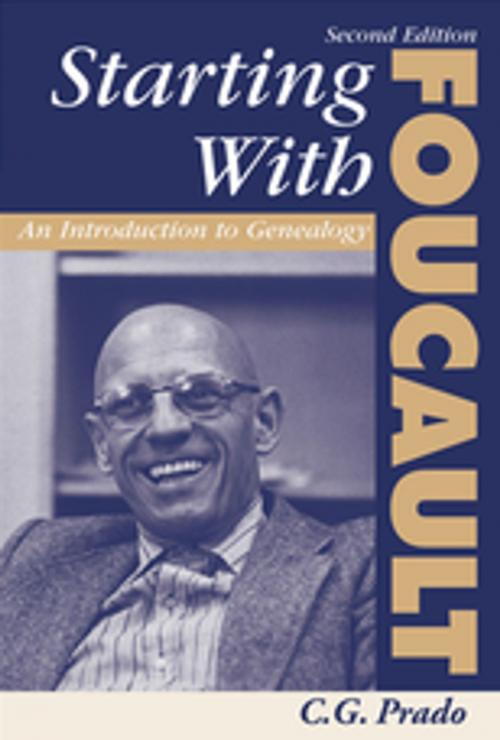Starting With Foucault
An Introduction To Genealogy
Nonfiction, Social & Cultural Studies, Social Science, Sociology| Author: | C. G. Prado | ISBN: | 9780429976827 |
| Publisher: | Taylor and Francis | Publication: | March 5, 2018 |
| Imprint: | Routledge | Language: | English |
| Author: | C. G. Prado |
| ISBN: | 9780429976827 |
| Publisher: | Taylor and Francis |
| Publication: | March 5, 2018 |
| Imprint: | Routledge |
| Language: | English |
Michel Foucault had a great influence upon a wide range of disciplines, and his work has been widely interpreted and is frequently referred to, but it is often difficult for beginners to find their way into the complexities of his thought. This is especially true for readers whose background is Anglo-American or "analytic" philosophy. C. G. Prado argues in this updated introduction that the time is overdue for Anglo-American philosophers to avail themselves of what Foucault offers. In this clear and greatly-revised second edition, Prado focuses on Foucault's "middle" or genealogical work, particularly Discipline and Punish and Volume One of The History of Sexuality, in which Foucault most clearly comes to grips with the historicization of truth and knowledge and the formation of subjectivity. Understanding Foucault's thought on these difficult subjects requires working through much complexity and ambiguity, and Prado's direct and accessible introduction is the ideal place to start.
Michel Foucault had a great influence upon a wide range of disciplines, and his work has been widely interpreted and is frequently referred to, but it is often difficult for beginners to find their way into the complexities of his thought. This is especially true for readers whose background is Anglo-American or "analytic" philosophy. C. G. Prado argues in this updated introduction that the time is overdue for Anglo-American philosophers to avail themselves of what Foucault offers. In this clear and greatly-revised second edition, Prado focuses on Foucault's "middle" or genealogical work, particularly Discipline and Punish and Volume One of The History of Sexuality, in which Foucault most clearly comes to grips with the historicization of truth and knowledge and the formation of subjectivity. Understanding Foucault's thought on these difficult subjects requires working through much complexity and ambiguity, and Prado's direct and accessible introduction is the ideal place to start.















